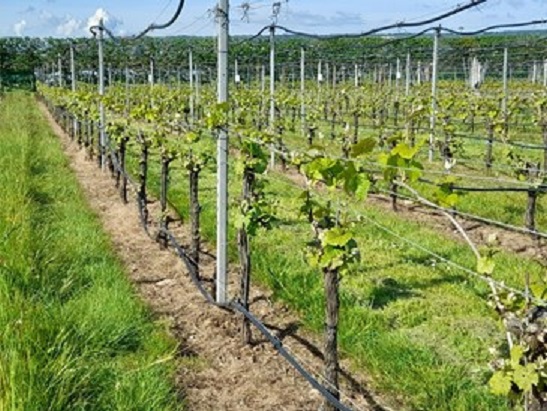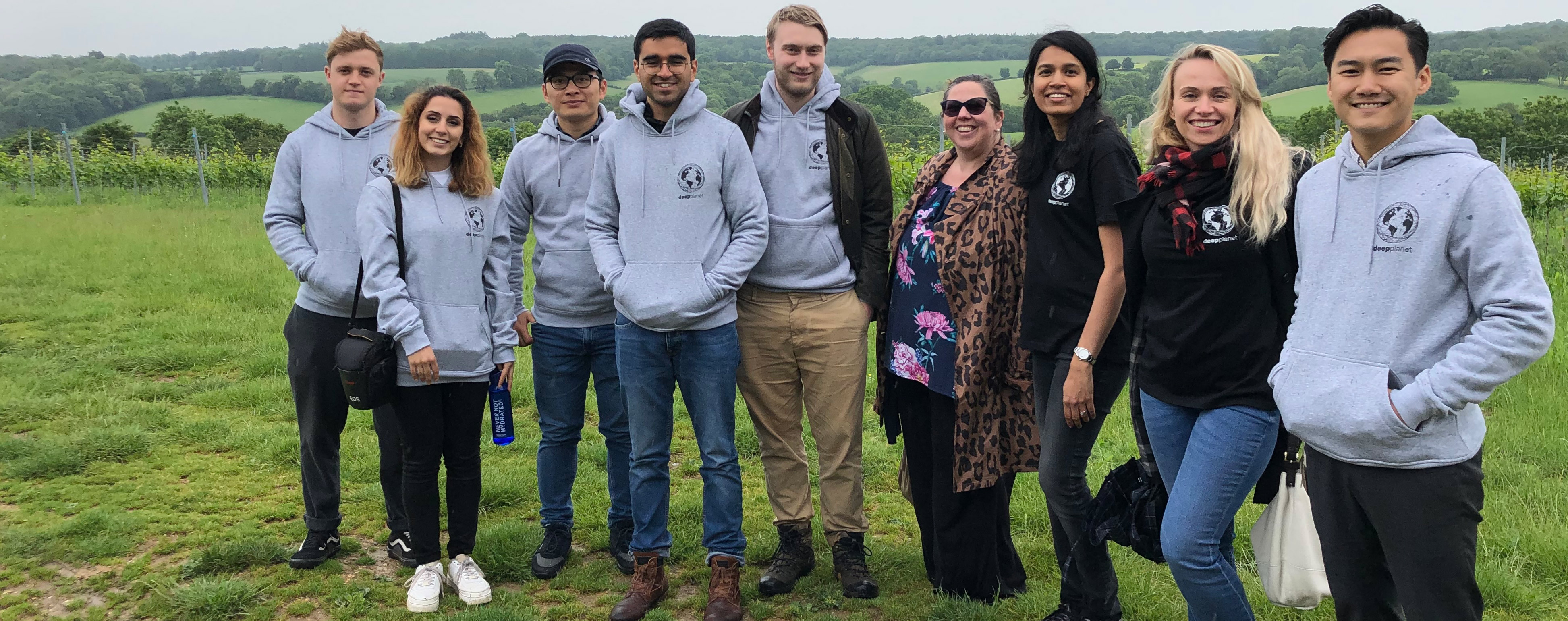The aim of the money from Growing Kent & Medway is to commercialise the prototype, called VineAI, which has been developed by Deep Planet in collaboration with the UK’s National Institute of Agricultural Botany (NIAB), English Wines, and three of the UK’s leading wine producers – Gusbourne, Nyetimber, and Rathfinny.
Deep Planet uses artificial intelligence and machine learning to analyse satellite imagery to detect and predict the presence of fungal diseases, like botrytis, and powdery and downy mildew, in UK vineyards. The goal of the project is to introduce cost-efficient and scalable precision agriculture solutions to the UK’s grapegrowers and wine businesses, replacing inefficient disease detection methods of monitoring by humans or drones.
The nine-month project is currently being tested at the three leading UK wine producers’ vineyards and NIAB’s research vineyard (below) in East Malling, Kent.

Sushma Shankar, co-founder of Deep Planet, said: “We applied for the Prototyping and Demonstrator Fund to help bring climate change resilience to vineyards in the Kent and Medway region. Our project will enable UK vineyards to proactively mitigate the impact of disease by detecting the type of disease and employing appropriate management strategies.
“This will help farmers to efficiently reduce their costs in mitigating the disease but also improve the yield and quality of the grapes. With UK's wine industry growing significantly, the benefits of this project will grow multifold, as we see it being integrated into regenerative and sustainable vineyard management practices.”













.png)






